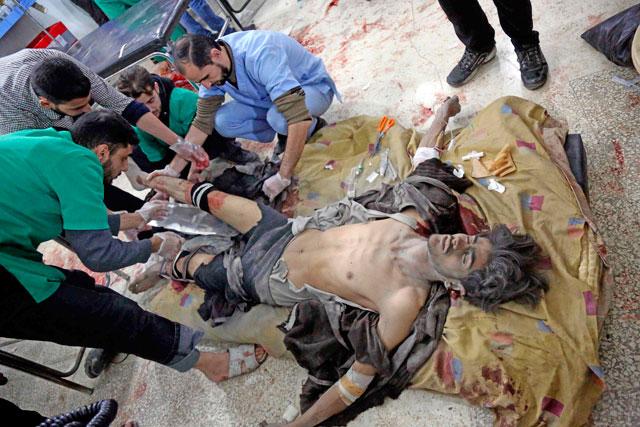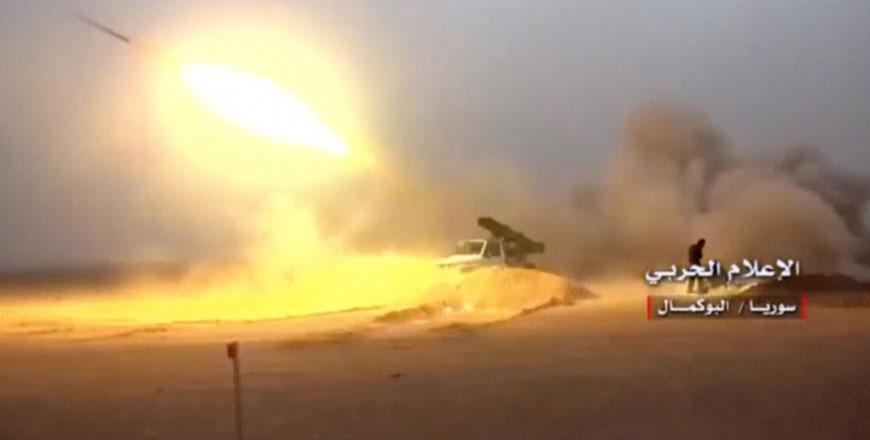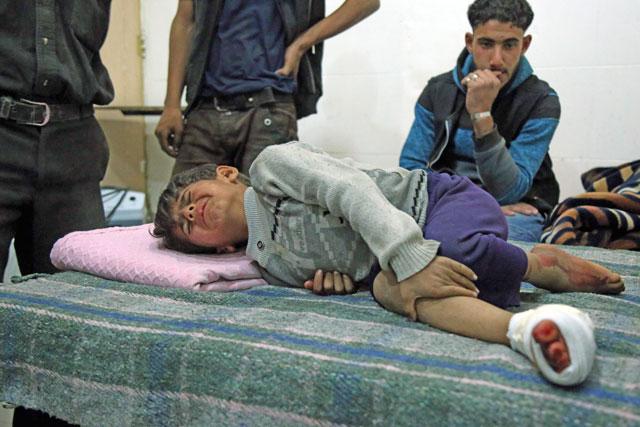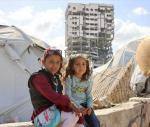You are here
Syria army renews assault on last Daesh-held town — monitor
By AFP - Nov 16,2017 - Last updated at Nov 16,2017

A wounded man receives treatment at a makeshift hospital in the rebel-held besieged town of Arbin, in the Eastern Ghouta region on the outskirts of Damascus, following reported shelling on Thursday (AFP photo)
BEIRUT — The Syrian army on Thursday entered Albu Kamal, the last town in the country held by the Daesh terror group, several days after the extremists recaptured it, a monitor said.
The town in the eastern province of Deir Ezzor on the border with Iraq was initially captured by the army and allied forces a month ago but Daesh retook it in a counterattack.
The Britain-based Syrian Observatory for Human Rights said the new offensive had successfully penetrated the town, with troops backed by Russian air strikes advancing from the west, east and south.
"Fighting is ongoing inside the town, there is artillery fire and there are Russian air strikes," observatory director Rami Abdel Rahman said.
The first assault on Albu Kamal was spearheaded by Syrian government allies, including Iraqi and Lebanese Shiite fighters, and advisers from Iran's Revolutionary Guard, the observatory said.
"This time, the military operation is being led directly by regime forces," Abdel Rahman said, adding that troops had taken the town's eastern, southern and western suburbs.
Daesh still holds around 25 per cent of the countryside of Deir Ezzor province but are under attack not only by government forces but also by US-backed Kurdish-led fighters.
The extremists once controlled a territory the size of Britain, proclaiming a "caliphate" in 2014 that spanned Syria and Iraq.
But they have successively lost all their key strongholds, including Raqqa in Syria and Mosul in Iraq.
Related Articles
DEIR EZZOR, Syria — The Syrian army and loyalist militiamen Sunday retook full control of Albu Kamal from the Daesh terror group, a military
BEIRUT — Syrian troops and allied fighters advanced Saturday to capture most of Albu Kamal, a monitor said, in a tug-of-war over the Daesh t
BEIRUT, Lebanon — A US-led coalition air strike on Syrian army positions overnight killed at least 12 pro-regime fighters in an area where b





















